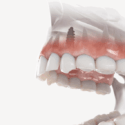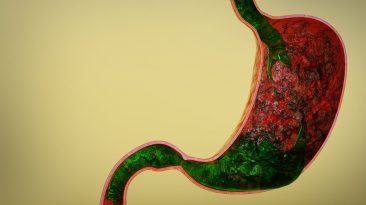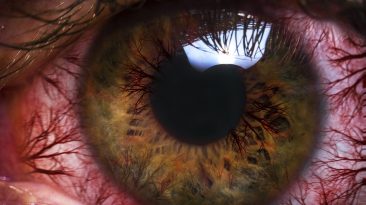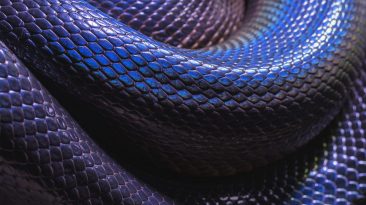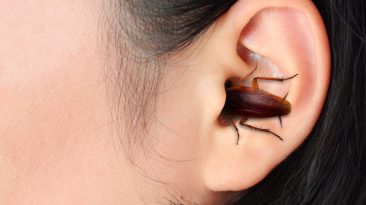Nature has many lethal predators that would love to eat you. Most of these are animals. But what about plants?
Well, there’s one plant that thrives in boggy areas and has a taste for insects, The Venus Flytrap. So what would happen, if a giant one trapped you?
Could you survive? How long would it take to be fully consumed? Do Venus Flytraps actually like the taste of humans?
In our other videos, we’ve looked at what would happen if you were eaten by a whale, and even an anaconda! So how about a carnivorous plant?
Venus Flytraps mainly get their energy from the soil. But to stay healthy, they need to eat a few insects per month during the growing season.
Ok, so you’re not an insect, but a giant Flytrap might not be able to tell the difference. So how exactly would it eat you?
The Venus Flytrap has three stiff trichomes that are like sensitive hairs on each of its inner leaves. When they are touched, the plant gets interested, but it won’t snap shut immediately. If a little piece of dirt or leaf lands on it, the plant will ignore it and stay open.
But when something bends these hairs more than three times, like a fly, or a terrified human, it’s mouth snaps shut, trapping its prey. This trapping motion is called “thigmonasty,” and is very nasty indeed!
In this scenario, you’d probably want to play dead for about 12 hours. If you’re lucky, and very still, the trap might open. But what if you weren’t so lucky?
Once you’re in its grasp, the Venus Flytrap will stay shut to keep bacteria out of its leaves. It squeezes tightly around you, while secreting an antiseptic juice to stop you from turning rotten. You’d essentially be pickled! Yummy.
Once inside, you would be compeletely sealed, like some sort of biological coffin. With little oxygen, you’d probably pass out pretty soon.
If you try to escape, any movement will provoke the plant to start producing enxymes and highly acidic digestive fluid. These enzymes will absorb any sodium you may have in your body, helping the Venus Flytrap transport nutrients.
Plants generally don’t like sodium, but the Flytrap needs it to survive. Humans are also rich in phosphorus and nitrogen, which are vital to the plant’s survival, and lacking in its natural environment.
After about 5-12 days of digesting you, the plant would be back open for business! Whatever is left of you would likely be washed out by the rain or blown away by the wind.
So what makes the Venus Flytrap so appealing to its prey? The plant produces a sweet nectar that is irresistable to bugs, making it a perfect natural insecticide for gardeners that want to avoid adding chemicals to their plants. If there are a lot of mosquitoes where you live, it might be a good idea to plant a bunch of these around your home!
Some companies have tried selling the Flytrap’s extract as a homeopathic supplement, claiming to fight all kinds of ailments. But these claims have been mostly debunked. So, don’t get trapped into thinking it will solve your medical problems!
The real question is, could scientists actually plant one big enough to eat a human? Well, they’d have to manipulate the plant’s DNA. It would take 120-foot long traps to catch a six-foot human, which probably isn’t going to happen any time soon.
Flytraps have been known to die from severe indigestion when fed ground beef. So chances are, they likely wouldn’t find you very tasty either.
Subscribe to What-If on YouTube or follow the show on Facebook Watch.
Sources
- “The Mysterious Venus Flytrap”. 2020. botany.org. Accessed February 5 2020.
- “Venus flytrap | Plant”. 2020. Encyclopedia Britannica. Accessed February 5 2020.
- “Housefly | Insect”. 2020. Encyclopedia Britannica. Accessed February 5 2020.
- “Venus Flytrap | National Wildlife Federation”. 2020. National Wildlife Federation. Accessed February 5 2020.
- “Carnivorous Plant Nursery”. 2020. Carnivorous Plant Nursery. Accessed February 5 2020.
- “How Tall Is a Venus Flytrap?”. 2020. Garden Guides. Accessed February 5 2020.
- “The Venus Flytrap: A Complete Guide To Growing Dionaea”. 2020. Tom’S Carnivores. Accessed February 5 2020.
- “Don’T Fall for Venus Flytrap Claims, Experts Say”. Matt Smith, Webmd. Accessed February 5 2020.







